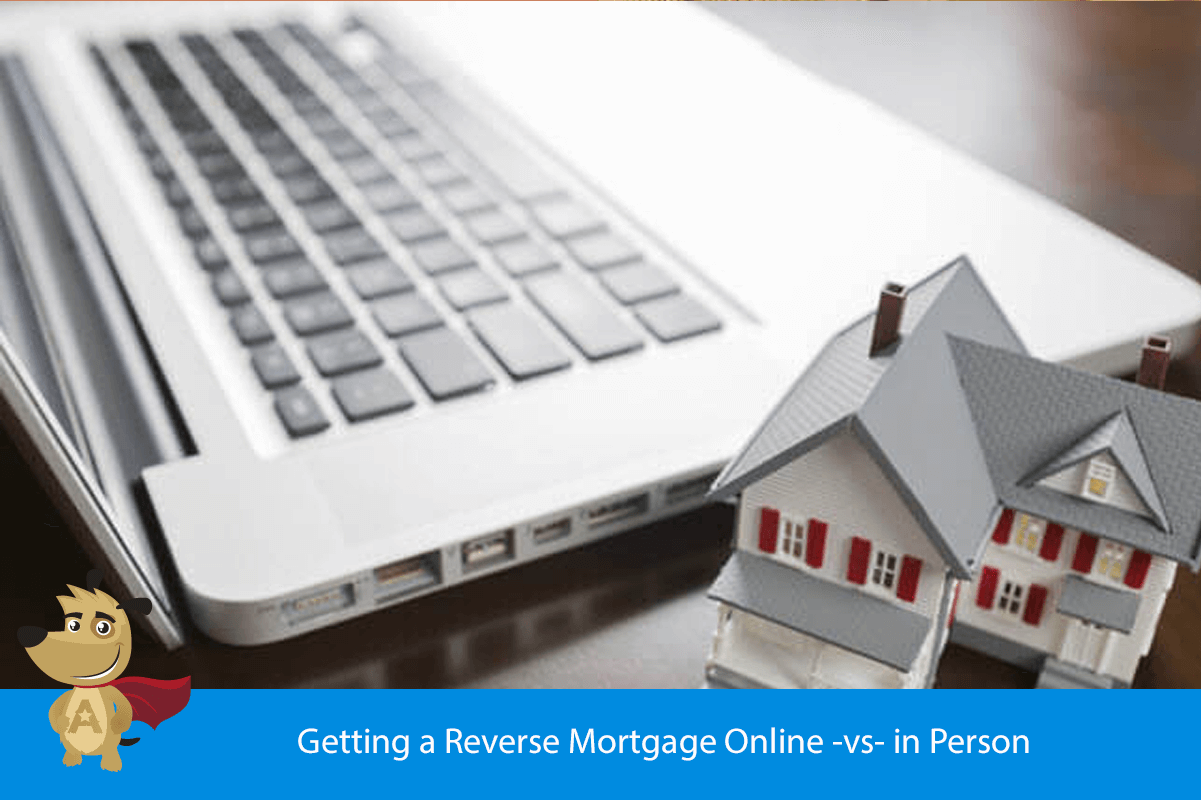
America’s #1 Rated Reverse Lender*
Getting a Reverse Mortgage Online -vs- in Person
 |
Michael G. Branson, CEO of All Reverse Mortgage, Inc., and moderator of ARLO™, has 45 years of experience in mortgage banking, with the past 20 years devoted exclusively to reverse mortgages. A Forbes Real Estate Council member, he developed the industry's first fixed-rate jumbo reverse mortgage and has been featured in Forbes, Kiplinger, the LA Times, and Yahoo Finance. (License: NMLS# 14040) |
 |
Cliff Auerswald, President of All Reverse Mortgage, Inc., and co-creator of ARLO™ — the industry's first real-time reverse mortgage pricing engine — has 27 years of experience in mortgage banking, with 20+ years focused exclusively on reverse mortgages. A recognized expert in reverse mortgage technology and consumer education, he has been featured in Kiplinger, Yahoo Finance, Realtor.com, and HousingWire. (License: NMLS# 14041) |
Making the decision to apply for a reverse mortgage is a large decision in and of itself, but once you do decide you’re ready, you will have a choice to make whether you want to work with a loan officer over the phone or in person.
You can complete a reverse mortgage in person with a local loan officer or you can work with someone who may actually be states away.
There are some things to consider about each option. But keep in mind, each state has their own licensing for reverse mortgage loan officers. Your loan officer, regardless of location, should be able to provide you with licensing info when you inquire. Loan officers can be licensed in multiple states at one time.

In-person
Some people just prefer to do business face-to-face. Many loan originators will make an appointment to meet in their office, and some will even come to your home.
Getting a reverse mortgage in person may involve a few meetings with your loan originator, so bar in mind and plan for the time it will take to set and go through any appointments. Consider travel time for you or for the loan officer, which could be substantial depending on where you live.
Sitting face-to-face with someone can also make you feel more connected to the loan officer as opposed to just speaking with them over the phone. It’s important to remember, though, that all loan originators—whether they work with borrowers over the phone or face-to-face—require the same licensing.
Over the internet or phone
On the flip side, working with a loan officer across the country online or by phone may be less time consuming when it comes to discussions and meetings.
Sometimes working online and over the phone can be less expensive too. An originator who works over the phone may not require the overhead costs involved with running their own business, such as office rent. Those savings may be passed on to the borrower.
Working with a loan officer who isn’t local can also be just downright more convenient. You don’t need to go out to meet with him or her and can be anywhere when discussing your reverse mortgage.
Keep in mind: when you work with a loan officer over the phone, you will still work with the same local Federal Housing Administration (FHA)-approved appraiser as you would with an in-person originator, and you will still work with a notary on closing documents (usually in your home).
Going through reverse mortgage counseling will also be the same regardless of whether you choose to work with a loan officer in person or over the phone. Counseling, too, can be conducted in-person or on the phone. (However, some states require in-person counseling, so check to see what the rule is in the state where you live.)
Red flags
Regardless of whether you choose to work with a loan officer over the phone or in person there are a few red flags to look out for that may mean you aren’t working with the most ethical officer.
Lenders do make more money the higher the opening loan balance is, so this incentives lenders to originate loans with high initial draw limits, rather than lines of credit. Also, if a lender is pushing for a higher disbursement at closing, they may be thinking more about his or her commission than what is in your best interest.
When choosing a loan officer, it is wise to shop around. See what kind of experience a potential loan officer has and talk to people who have been through the process before to get their firsthand recommendations.
ARLO recommends these helpful resources:


 Michael G. Branson
Michael G. Branson Cliff Auerswald
Cliff Auerswald

Have a Question About Reverse Mortgages?
Over 2000 of your questions answered by ARLO™
Ask your question now!